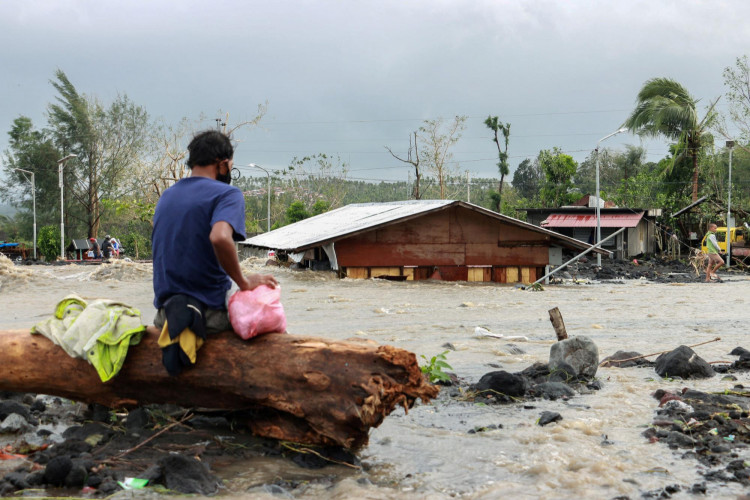Police said on Thursday (Dec. 29) that one person had died and three others were missing in the southern Philippines after being hit by a landslide, bringing the total number of fatalities nationwide from the recent rains to at least 33.
The most recent death occurred on Wednesday in Mati City, Davao Oriental province on Mindanao island, when a landslide buried four individuals while they were fishing, according to authorities.
According to Mati City police chief Ernesto Gregore, a 62-year-old man's body was found, and the hunt for his companions was still ongoing.
"There was a heavy downpour in the mountains. They were fishing in a river when the landslide occurred," Gregore said.
Authorities were still looking for more than two dozen other people who went missing after heavy rains caused flooding and landslides across the central and southern regions over the Christmas weekend.
Over the weekend, the weather deteriorated as the disaster-prone nation of 110 million people prepared for a long Christmas holiday.
Rains that have driven tens of thousands of people into evacuation centers have demolished hundreds of dwellings and wiped off more than 5,000 hectares of crops, according to the national disaster agency.
The province of Misamis Occidental, located on Mindanao, has had the highest number of fatalities, with 15 persons killed by drowning or rain-induced landslides.
Scientists have warned that storms are growing stronger as the world gets warmer, and the Philippines is one of the most vulnerable countries to the effects of climate change.
This month, President Ferdinand Marcos, Jr. requested assistance from EU officials to help vulnerable nations like the Philippines deal with the effects of climate change.
The Philippines is "regarded as probably one of the most, if not the most, vulnerable countries in the world to the effects of climate change," Marcos emphasized.
"Since that seems to be the case and that is what we are facing in the Philippines, we are very much in need of the assistance of Europe, of all the first world countries, and to be able to adjust our economy, our communities to the onset of the effects of climate change," he said during the Association of Southeast Asian Nations-European Union (ASEAN-EU) working luncheon in Belgium.
The President advocated for more specific financial standards for minimizing the effects of climate change.
Marcos also emphasized in his speech to the United Nations General Assembly last September that developing countries bore the brunt of climate change.





